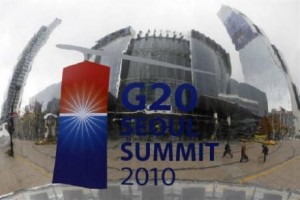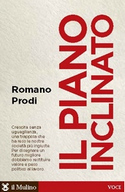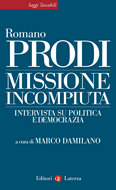G20 must deliver a road map for a new asset of the international financial and monetary system
 Former Italian PM says new development agenda needed for G-20
Former Italian PM says new development agenda needed for G-20
Interview by Marzia De Giuli to Romano Prodi on Xinhua 2010-11-11 23:33:31
MILAN, Italy, Nov. 11 (Xinhua) — A new agenda for development issues worldwide is badly needed for the G-20, says former Italian Prime Minister Romano Prodi.
Prodi said in an interview with Xinhua on Wednesday that it has become evident over the past several years that the world needs a wider representative than the G-7 or G-8.
“In my life, I have participated in 10 G-7 and G-8 summits, five of which in quality of president of the European Commission, witnessing year after year how that assembly was insufficient to interpret the big problems of the world,” he said on the eve of a two-day G-20 summit in Seoul.
“The G-20 can and must be the solution, but it still lacks the technical, preparatory and organizational structures necessary to play its role,” the former prime minister said.
In Prodi’s view, the global financial crisis has accelerated the shift from G-8 to G-20 in a sense, but the global financial crisis has also accentuated divisions between different players.
Speaking of the G-20 summit in Seoul, Prodi said, he doesn’t expect any agreement to be reached, but he wishes dossiers and problems are “put into line” in order to set a road map for the negotiations aimed at delineating a new asset of the international financial and monetary system.
“Of course this process needs time due to the growing complexity of the global scene, and all steps forward will need to be done calmly,” he said.
“We need to remember that all previous monetary agreements, Bretton Woods included, had been preceded by years of conferences and long technical preparation despite the global asset being much simpler at that time,” he noted.
He said it is clear that the monetary scenario, with the euro and dollar side by side, doesn’t reflect the globalized world anymore.
“Today nothing is possible without considering the growing active role of the world new protagonists, such as China,” he said.
Prodi said moving from one monetary system to another and ordering a globalization in such a rapid and tumultuous way are two tasks that need “magnanimity and time” since adaption in worldwide change processes are always slow and difficult for all the players.
“Therefore, I am not surprised at all of the tension between China and the United States, which are natural parts of the change process,” he said. “Neither am I worried about the momentary scarcity of results, as I trust the wisdom of leaders in charge of taking important decisions.”
Prodi said he never lined up with those saying that the world is already out of the economic crisis. “Rather I say it’s like being on the right way after a big disease which needs a long
convalescence,” he said.
Prodi defined Europe as “one of the big hopes in the world, indispensable for the balancing of future international relations.”
Prodi, also a member of the Chinese Academy of Governance, said if Europe cultivated a bilateral relationship with China rather than relating through its single countries, it would be better for both “in terms of quality and quantity, considering Europe’s world leading GDP, industrial production and exports.”
The former prime minister said the continent’s fragmentation still prevails, as proved by the Greek financial crisis that he said transformed a small problem into a big one due to the lack of a joint action.
He said some steps had been taken but Europe’s role in the G-20 won’t be strong if the continent’s single countries keep adopting diverse tactical strategies.
For example, he said, Italy hasn’t realized yet that it urgently needs a big change from the inside in order to become the object of foreign investments and understand the “fermentation brought by globalization.”
“From one side, closing the door to ongoing change processes is unthinkable, but from the other, Italians need first to become aware of this processes in order to adopt the consequent measures,” he said.






















